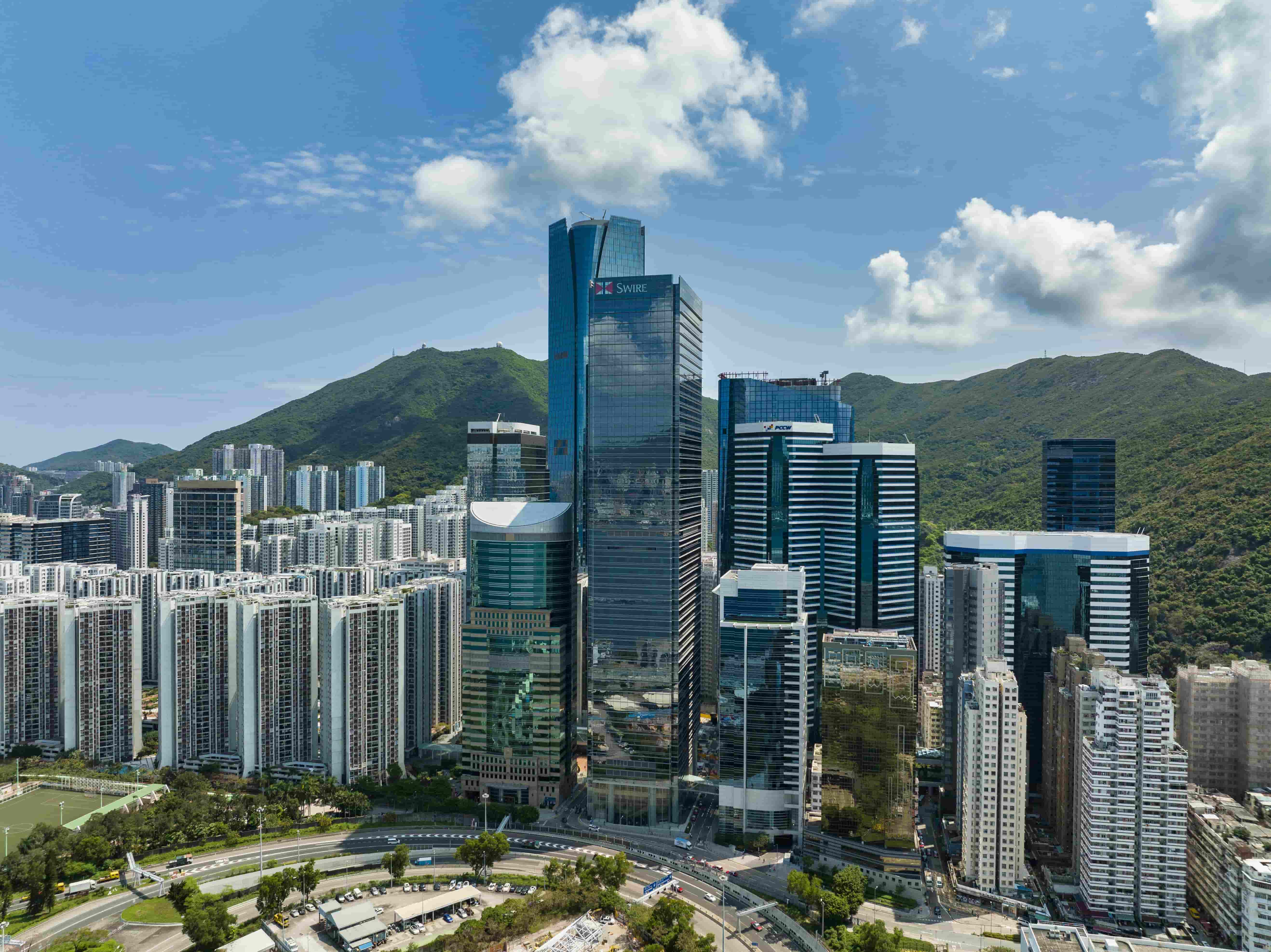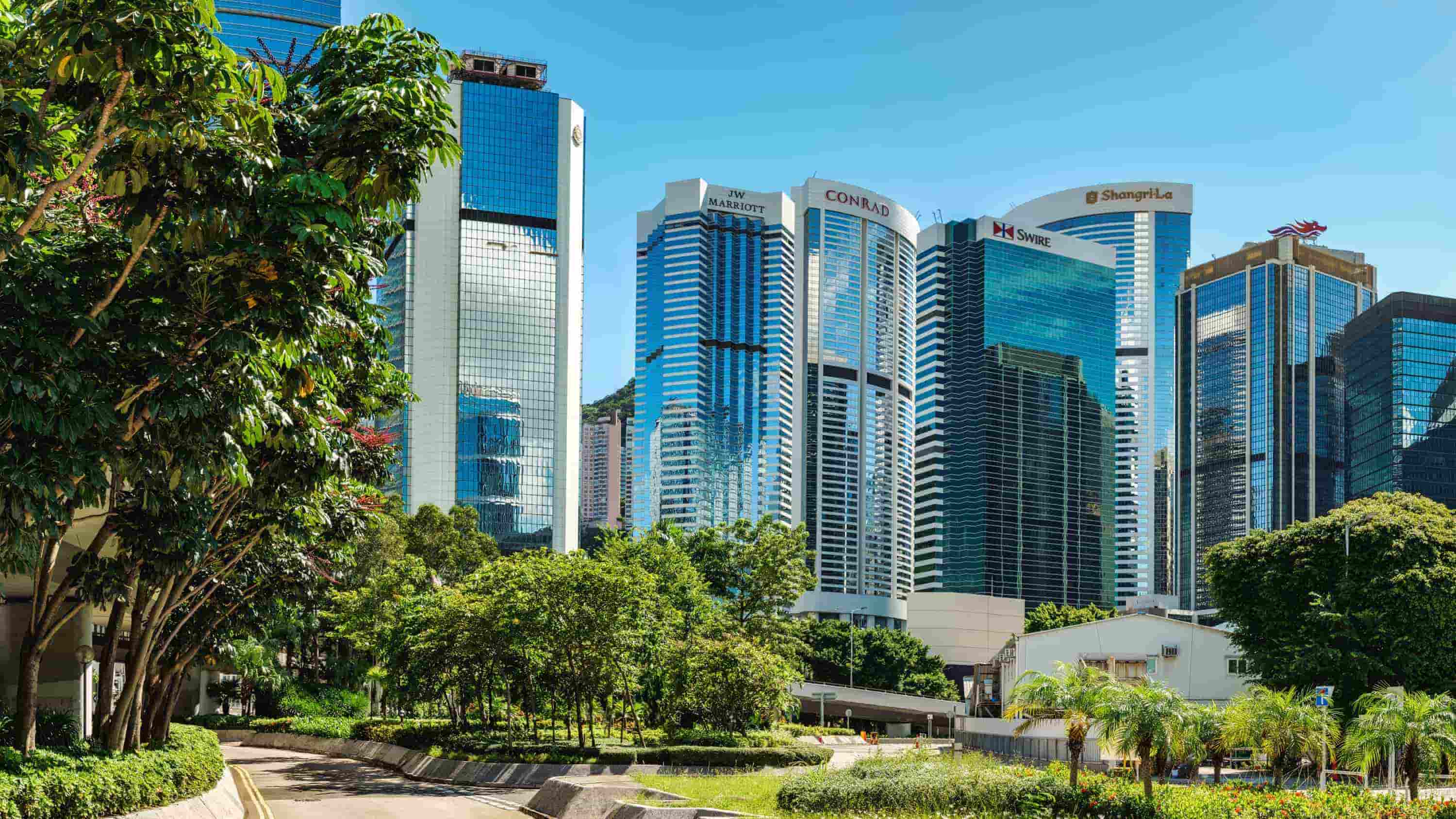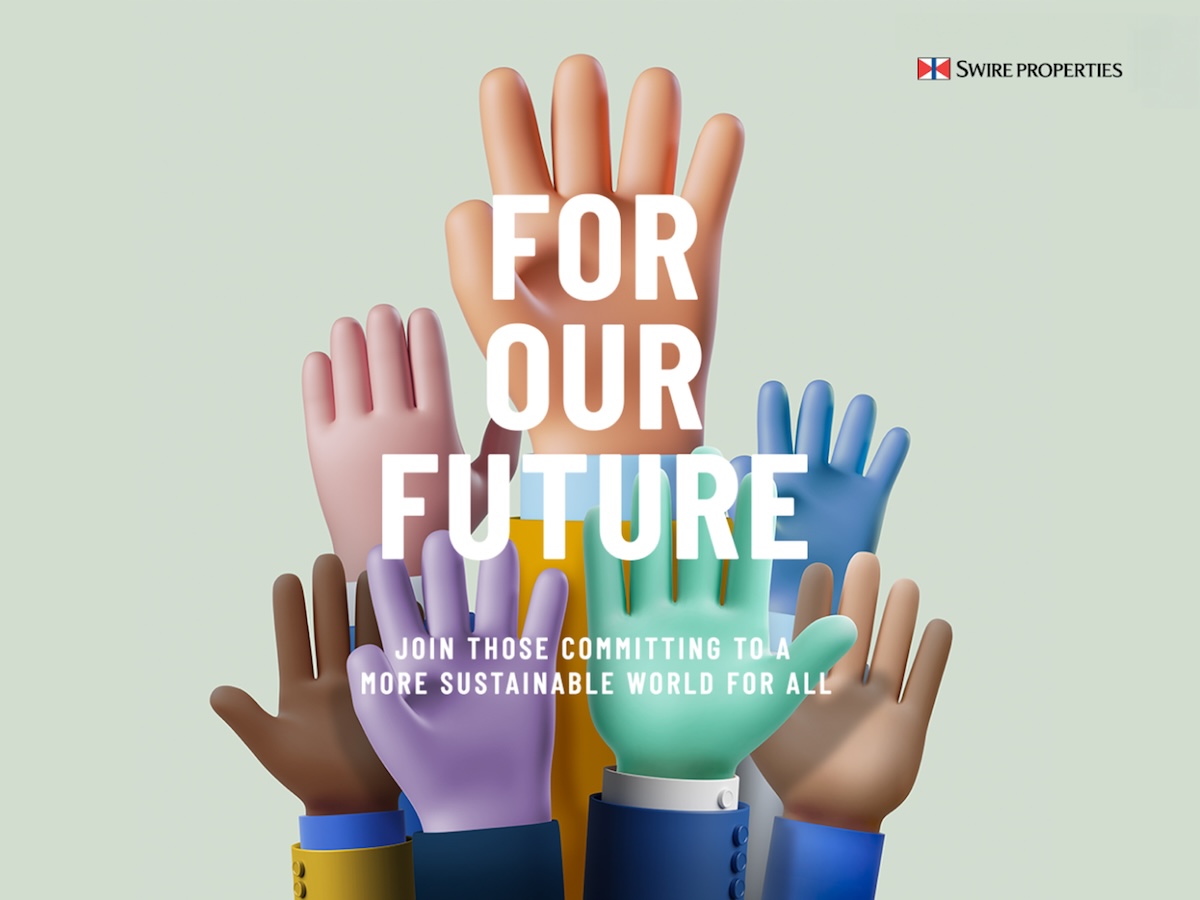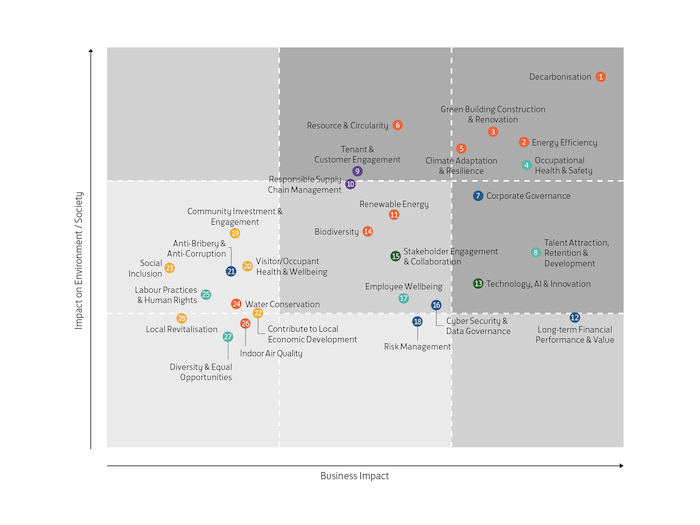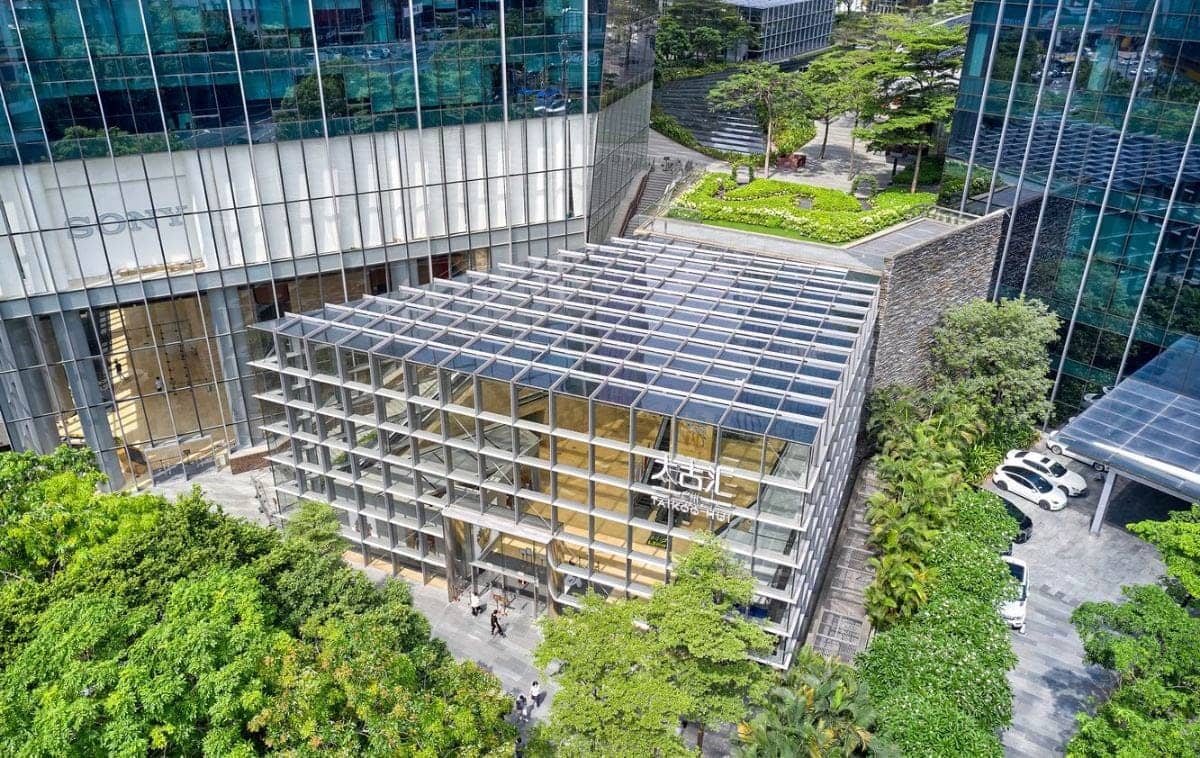SD Governance Structure
Swire Properties’ SD governance framework builds on our strong foundations of good corporate governance and high ethical standards.
Our SD 2030 Strategy seeks to reinforce these foundations by integrating economic, social and environmental considerations into all levels of our business decision-making processes.
NaN / 4
Sustainable Development Policy
GRI 2-23, 2-24
Our Sustainable Development Policy (“SD Policy”) was first published in 2008 and has guided the Company’s operations since. The SD Policy is reviewed periodically and was last updated in 2021. It reflects our belief that long-term value creation depends on the sustainable development of our business, our supply chain and the communities in which we operate. These factors are continuously considered during the inception, design, construction, occupation and demolition phases of our development projects.
The SD Policy explicitly states that the Company will be a good steward of the natural resources and biodiversity within our influence and that we will ensure that all potentially adverse impacts of our operations are identified and managed appropriately.
With respect to the environment, our approach follows the precautionary principle1 which states, “Where there are threats of serious or irreversible damage, lack of full scientific certainty shall not be used as a reason for postponing cost-effective measures to prevent environmental degradation”.
We strive to operate in a manner that protects the health and safety of all the people with whom we work. We also strive to be an employer of choice by providing a working environment in which all employees are treated fairly and with respect in order that they realise their full potential.
1 | The precautionary approach is referred to in Principle 15 of The Rio Declaration on Environment and Development. |
Swire Properties’ Policies
Our SD Policy is supported by the following policies that focus on specific environmental and social impacts.
Integrating SD into our Business Operations
Driving Employee Engagement and SD Performance
Support from our employees is vital to the success of our SD 2030 Strategy. In 2018, our performance development review system was updated to engage employees in our SD 2030 Strategy on a deeper level. This year, we further enhanced the system by introducing a comprehensive new SD e-learning module covering all basic aspects of our SD 2030 Strategy and relevant ESG topics. Our office employees continued to align their annual performance goals with each Pillar and the Company’s SD vision. In turn, these goals inform their variable compensation.
We have also established corporate SD performance metrics and targets, in areas such as health and safety and decarbonisation, that are linked to variable compensation for our Chief Executive and senior executives. The general managers have a balanced scorecard to monitor performance around energy and water management, staff turnover rate and training hours and performance targets related to energy management in their respective portfolios.
Business Integration and Budgeting
In 2023, we continued to implement SD initiatives in our day-to-day operations and decision-making at both the asset and functional levels of all our major business units in Hong Kong and the Chinese Mainland. All our major business units now incorporate SD considerations into their annual budgets and share proposed budget allocations with the relevant SD Working Groups.
In 2023, Swire Properties began piloting the use of internal carbon pricing (“ICP”) to determine the potential impacts of carbon emissions on our investments, quantify carbon risks to our business operations and better reallocate capital towards low-carbon and energy efficient investment and opportunities. ICP also facilitates engagement across departments and teams, allowing them to integrate carbon-reduction strategies with business objectives and achieve our common decarbonisation goal.
The ICP Committee, consisting of representatives from the TSSD and Finance departments, jointly administers the decarbonisation funds generated by ICP initiatives, which are used to finance innovative solutions to help us achieve our science-based targets. The ESG Steering Committee oversees the overall mechanism and project approval to ensure that funds are effectively channelled towards meaningful and impactful projects.
A total of HKD3,084 million has been budgeted as the future three-year (2024 to 2026) forecast expenditure for climate-related projects, including funds generated from ICP.
Corporate Risk Management
Our Corporate Risk Register incorporates ESG-related risks, such as climate and biodiversity-related risks. We have also integrated SD and ESG factors into our corporate risk analysis.
In 2022, we began digitalising the CRR dashboard and risk scoring model. The new digitalised CRR platform offers a standard template for updating risk details, risk scoring and risk mitigation measures, making it easier to benchmark across the Swire Group (“the Group”). In 2023, we optimised the system and the reporting protocol, and conducted a risk workshop to identify the potential effects of geopolitical risks on our business.
Swire Properties’ management will continue to monitor and conduct regular reviews of risks and the effectiveness of mitigation strategies. External risk advisors will also be regularly consulted for their risk-management experience, allowing us to keep abreast of industry best practices.
Green Financing
Swire Properties is committed to integrating sustainability considerations into our financing mechanisms. By obtaining green financing, we reaffirm our commitment to sustainable development and to designing and developing sustainable projects that improve the wellbeing of building occupants and local communities.
Beginning in 2018, Swire Properties launched various green financing mechanisms to fund green building developments and other projects. These have included our first green bond, issued in January 2018, and our first sustainability-linked loan, obtained in July 2019, the interest rate of which is indexed against improvements in the Company’s year-on-year ESG performance. Since the launch of these mechanisms, Swire Properties has received reductions in the interest rates of all our signed sustainability-linked loans by achieving predetermined sustainability-linked performance targets.
In July 2023, we priced our inaugural public renminbi (“RMB”) green bonds, which we called “green dim sum bonds”, making the Company the first Hong Kong corporate to issue an RMB-denominated public green bond, and the first to return to the public dim sum bond market since 2019. This was also the largest-ever corporate green dim sum bond issuance in Hong Kong history. The transaction raised RMB3.2 billion, with the net proceeds being used to fund or refinance the Company’s existing or new eligible green projects. This issuance also demonstrates our support of the Hong Kong government’s green financing efforts, and our support of the city’s aspirations to become the world’s leading green technology and green finance centre, as well as an international offshore RMB trading hub.
During the year, we secured sustainability-linked loan facilities totalling HKD7.2 billion and green bonds totalling HKD6.0 billion. As at 31 December 2023, approximately 60% of our bond and loan facilities were from green financing instruments such as green bonds, sustainabilitylinked loans and green loans. We also continued to update investors and analysts about our SD performance through a comprehensive ESG webinar and question-and-answer session.
In 2023, we issued our sixth annual Green Finance Report, which provides information on projects funded by the green bonds and the green loan and their estimated quantitative environmental impacts, including energy and water savings, renewable energy generation and wastewater management impacts.
See More In
NaN / 3


